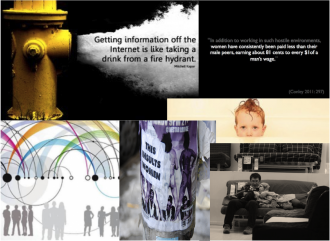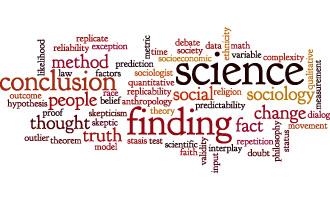 This week, on The Editors’ Desk*, Doug Hartmann enumerated and tried to define** six elements of the sociological worldview. Elsewhere on The Society Pages, our many contributors worked to demonstrate that worldview—enjoy!
This week, on The Editors’ Desk*, Doug Hartmann enumerated and tried to define** six elements of the sociological worldview. Elsewhere on The Society Pages, our many contributors worked to demonstrate that worldview—enjoy!
*That’s right: we all share one desk. It’s adorable. Possibly even adorkable.
**See what I did there? The man never met a conjunction he didn’t like. more...

